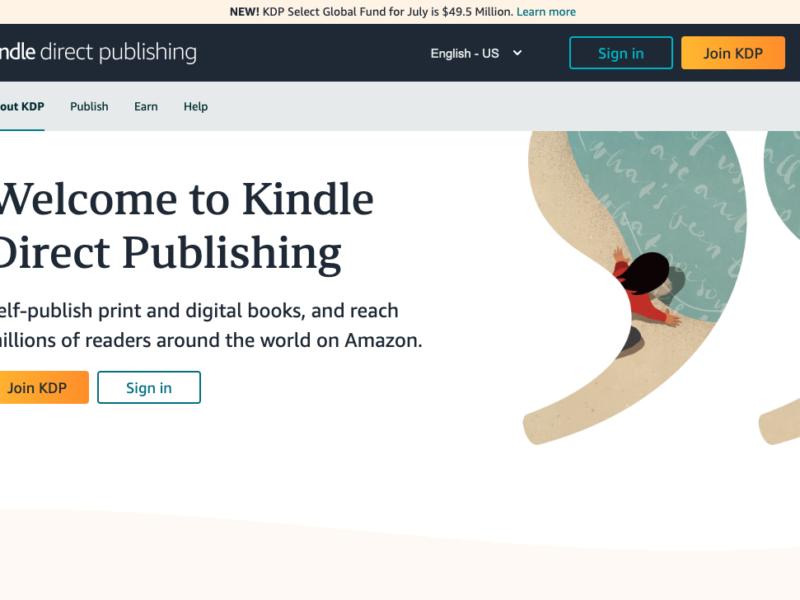In an intriguing move, Amazon has introduced new rules and guidance for self-publishers who utilize its Kindle Direct Publishing (KDP) platform, aiming to bring transparency to the use of artificial intelligence (AI) in content creation and publishing. The primary requirement? Authors must now declare if their content is AI-generated.
The announcement of these novel rules was made on Amazon’s KDP forum, stating that “when you publish a new title or make edits to and republish an existing title through KDP, you will be asked whether your content is AI-generated.” KDP provides authors the means to independently publish their books and make them available for sale on Amazon’s expansive online marketplace.
To accompany this significant change, Amazon has added a dedicated section to its content guidelines focusing on AI-generated and AI-assisted content. In defining these terms, AI-generated content encompasses text, images, or translations primarily created by AI-based tools, even if subsequent human edits are made. In contrast, AI-assisted content pertains to material initiated by authors and sellers but improved, edited, or refined using AI tools.
Notably, the guidelines allow the use of AI-based tools for brainstorming and idea generation without the need for disclosure, as long as the final product is created by human authors.
These developments come in the wake of recent incidents where Amazon removed suspected AI-generated books that were masquerading as the work of real authors. In August, author Jane Friedman voiced her concerns about multiple books, believed to be AI-generated, being falsely attributed to her. Amazon responded promptly by taking down these suspicious works.
In its forum announcement, Amazon emphasized its active monitoring of the rapid evolution of generative AI and its impact on reading, writing, and publishing. The company reiterated its commitment to delivering the best possible experiences for authors and customers, with a pledge to prioritize the interests of these stakeholders in its decision-making process.
The new guidelines place the onus on sellers to review and edit any AI-generated content to ensure it does not draw upon copyrighted works. However, Amazon has not disclosed how it plans to utilize the information provided by sellers regarding AI-generated content or whether it intends to inform buyers when they are purchasing AI-generated Kindle books.
Nicola Solomon, CEO of the Society of Authors in the UK, welcomed Amazon’s announcement, underlining the need for transparency when consumers purchase creative works. Solomon and her colleagues view this move as a positive step that will ultimately benefit human authors and their readers.
Nonetheless, Solomon also called for Amazon to extend the AI disclosure question to all books published on KDP, given the proliferation of poor-quality, rapidly generated titles alongside human-created works in recent times. She also expressed curiosity about how readers would be able to filter out AI-generated content when browsing for books.
In its quest for greater transparency and accountability in the era of AI-driven content creation, the publishing industry will watch closely as Amazon’s new rules take effect, reshaping the landscape of self-publishing and addressing concerns surrounding AI’s role in creative content production











